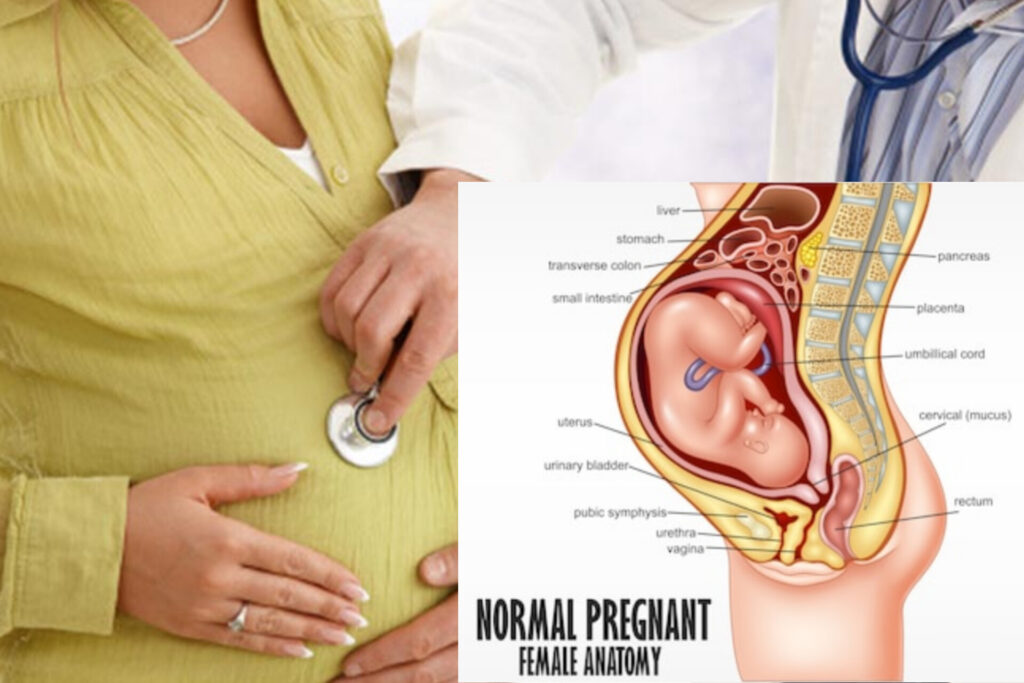
Unit – TV: Normal Pregnancy and Its Management
Chapter-8: Preconception Care & Genetic Counselling
Preconception Care:
Definition:
Preconception care includes medical, behavioral, and social interventions provided before pregnancy to improve maternal and fetal health outcomes.
Objectives:
- Identify and address health risks prior to conception
- Optimize the physical and emotional health of women of reproductive age
- Prevent congenital anomalies and pregnancy complications
- Provide genetic counseling and disease screening
1. General Health Evaluation of the Woman:
- Check for conditions such as diabetes, hypertension, asthma, thyroid disorders, heart disease, gum disease, and dental caries.
- Modify medications (e.g., replace ACE inhibitors for blood pressure).
- Avoid warfarin and use heparin instead in cases of deep vein thrombosis (DVT).
- Avoid certain acne treatments (e.g., isotretinoin) due to fetal risk.
2. Infectious Disease Screening:
- Screen for infections such as HIV, syphilis, gonorrhea, chlamydia, hepatitis B & C, rubella, cytomegalovirus, herpes simplex virus, toxoplasmosis, etc.
- Provide treatment if present or preventive advice if absent.
3. Genetic Disease Evaluation:
- Family history of genetic diseases like:
- Sickle cell anemia
- Cystic fibrosis
- Thalassemia
- Tay-Sachs disease
- Folic Acid Supplementation:
- For prevention of neural tube defects (NTD):
- Normal women: 400 mcg/day
- With prior NTD-affected child: 4 mg/day
- For prevention of neural tube defects (NTD):
4. Risk Behavior Counseling:
- Avoid:
- Smoking, alcohol, drug use
- Radiation exposure
- Toxic chemicals (paints, solvents, pesticides, thinners)
- Avoid hot tubs or overheating (hyperthermia)
5. Nutritional Assessment & Advice:
- Address deficiencies (e.g., iron, calcium, iodine, vitamin D, vitamin K)
- Limit caffeine intake (max. 2 cups/day)
- Provide nutritional supplements and advice on OTC drugs or naturopathic substances
6. Physical Activity & Weight Management:
- Encourage moderate exercise
- Maintain healthy Body Mass Index (BMI)
7. Screening for Mental Health & Abuse:
- Check for signs of domestic violence
- Provide mental health counseling if needed
8. Risk Assessment for Pregnancy Complications:
- Evaluate risk for:
- Cesarean section
- Preterm delivery
- Pregnancy-induced hypertension
- Gestational diabetes
- Rh incompatibility
- Postpartum hemorrhage (PPH)
- Thrombotic events
- Provide preventive counseling based on history
Genetic Counselling:
Definition:
A process that evaluates an individual’s genetic background to assess the risk of inherited disorders in future offspring and provides appropriate guidance, testing options, and support.
Types of Genetic Counselling:
- Prospective Genetic Counselling:
- Provided before conception to assess potential risks of genetic disorders in future children.
- Retrospective Genetic Counselling:
- Given after a previous child is affected by a genetic disorder to evaluate risk for subsequent pregnancies.
Indications for Genetic Counselling:
- Family history of known/suspected genetic disorders
- Previous child with birth defects
- Developmental delay (mental or physical) in previous children
- Consanguineous marriage (marriage between blood relatives)
- Maternal age >35 years
- Prenatal ultrasound or diagnostic testing suggests abnormality
- Exposure to teratogens during pregnancy
- Abnormal amniocentesis or chorionic villus sampling (CVS) results
Steps in Genetic Counselling:
- Collect medical and family history
- Prepare a Pedigree Chart
- Assess recurrence risk for future offspring
- Perform carrier screening or diagnostic tests before or during pregnancy
- Counsel about options:
- Continue or terminate pregnancy in case of detected anomaly
- Plan for care of a child with a birth defect
- Provide information on community resources and support systems for affected families
Conclusion:
Preconception care and genetic counselling are essential steps in ensuring a healthy pregnancy and minimizing the risk of complications and genetic disorders in newborns.
